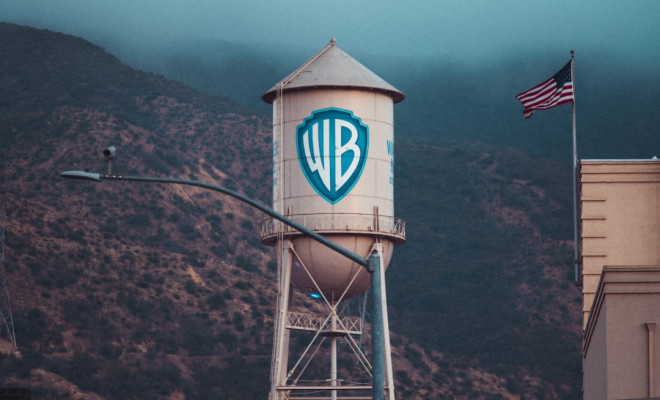
By all accounts, the world’s largest record labels are dominated by just three major record labels. These are:
Universal Music Group
Warner Music Group
Of course, things are never quite as they seem. In a list of the ten largest record labels published by musicianwave.com in 2022, the big three are listed in their own right and as the ultimate owners of six of the remaining seven labels. Only the Bertelsmann Music Group stands as a bulwark against the tide.
This hasn’t always been the case
Let’s roll back to the last years of the twentieth century to 1998. At this time, there were six big players in the world of record labels. These were:
Warner Music Group
EMI
Sony Music (Known as CBS Records until January 1991)
BMG (Formed in 1984 as RCA/Ariola International)
Universal Music Group (Known as MCA Music until 1996)
PolyGram
This situation had pretty much been the status quo since the last 1920s, albeit with different names for some of the big six. Let’s have a look at how we arrived at a situation of the big six and then how the industry was rationalized from six into three.
Warner Music Group
As the name suggests, Warner Music is an offshoot of Warner Bros. Films. The company had been involved in music publishing and recording ever since the end of the silent film era. However, they viewed it as nothing more than a vehicle for cheap music for films – Jack Warner had founded the Music Publishers Holding Company for just that purpose.
Through various acquisitions, by the late 1920s, Warners had the likes of George and Ira Gershwin, Duke Ellington, Al Jolson, and Bing Crosby on the books. However, the Great Depression and broadcast radio virtually put paid to the recording industry at that time, so Warners sold their interest in recording music.
Tab Hunter
Then along came an actor called Tab Hunter. In 1957, Hunter, who was contracted to Warner Bros, released the single Young Love through Dot Records. This was not a good thing for Warners because Dot was a record label that had recently been acquired by their rival Paramount Pictures.
The success of the single – it was Billboard’s fourth highest-selling single of the year led to another single Ninety Nine Ways which was a moderate hit. Hunter also recorded an album for Dot Records. However, Jack Warner was not happy.
Hunter was summoned to Warner’s office and told in no uncertain terms that the album would not be released on Dot Records. When Hunter pointed out that Warners had no record label on which to release records, Warner told him that he would start one. Warner Bros. Records was founded in April 1958.
Addition of Reprise Records
Initially, the new music division made a loss for Warners. However, in 1963, a deal was struck to buy Reprise Records which had been founded by Frank Sinatra. Ol’ Blue Eyes received $1.5 million from the deal but more importantly, Warners was now able to call on the expertise of Mo Ostin who Sinatra had himself hired from Verve Records.
Ostin was responsible for signing a plethora of huge stars. From the Kinks, through Jim Hendrix and on to Prince, Madonna, R.E.M., Talking Heads, Paul Simon, Neil Young, Joni Mitchell… the list goes on. Part of Ostin’s success was his ability to trust his artists, allowing them creative freedom to deliver the seminal works that all of them have produced.
Sale to Kinney National Company
In 1967, before it was ten years old, Warner Bros. was sold in its entirety by Jack Warner to Seven Arts Productions which resulted in the short-lived Warner Bros. Seven Arts, which in turn was bought by the Canadian Kinney National Company and rebranded as Warner Bros. Inc. on 16 December 1969.
Also in 1967, Atlantic Records (incorporating Stax Records) was purchased. This brought Aretha Franklin, Ray Charles, the Drifters, the Coasters, plus Booker T & the MGs, Sam & Dave, Wilson Pickett, Otis Redding, and Ben E. King to the label.
As Atlantic moved into rock music, Led Zeppelin, Cream, Crosby Stills & Nash, Yes, Emerson, Lake & Palmer, Genesis, King Crimson, Roxy Music, and Foreigner also came on board.
The Rolling Stones
By far the biggest band signed to Warner Bros. was the Rolling Stones. After they had parted company with British Decca as part of the fallout from their departure from the management of Allen Klein, they launched their own record label, Rolling Stones Records. Atlantic’s subsidy Atco would distribute their recordings in the US and Warners internationally.
Later, in 1972, Warner Bros. acquired Elektra Records and a new group Warner-Elektra-Atlantic or WEA was born.
Politics played a great part in the company’s direction in the period around the epochal early seventies. In particular, the tension between Ahmet Ertegun of Atlantic and Mike Maitland of Warner led to the effective but reluctant entrenchment of Mo Ostin’s position at this time.
Consolidation of position
During the seventies, through direct signings and various deals with various record labels in different countries, WEA was able to either directly or indirectly add bands such as Black Sabbath, Deep Purple, Led Zeppelin, The Doors, America, Carly Simon, The Stooges, MC5, Alice Cooper and Van Halen.
Still in 1972, there was another reorganisation and change of name. Kinney National Company owner Steve Ross sold off the non-entertainment business to consolidate as Warner Communications Inc.
Moving into the late seventies and eighties, and as discussed, Warners were now home to (via their deal for Sire Records) not only Madonna but Talking Heads, The Pretenders and The Ramones as well. Prince was signed by Ostin as a nineteen-year-old.
Towards streaming
At the other end of the scale, in 1988, R.E.M., already with five albums for I.R.S. Records signed for Warners for wheelbarrow loads of cash. By now, CDs had overtaken vinyl as the predominant medium for listening to music in the home.

Streaming services became more popular by the 2010s and as progress towards the digital age accelerated, Warner Music Group along with Sony Music Entertainment and Universal Music Group consolidated their position as the three monoliths of modern music. All three eventually struck deals with streaming services to make their content available.

I had no idea Warner Music Group had such a colorful history, dating back to the silent film era! The way they’ve evolved and adapted over the decades, signing legendary artists like Led Zeppelin and Prince, is a testament to their impact on the music industry. It’s also interesting to see how the music medium itself has shifted from vinyl to CDs to streaming. Warner Music Group’s story is like a microcosm of the entire music industry’s journey.
Thank you Matias,
I love the history of familiar things like this. How did Warner Music become what it is today? Well, we need to look at its origins to see how the company’s ethos developed. Obviously, as personnel come and go the ethos changes, but the idea that a record company could have been formed in order to release a record for a film star is just gold dust to me 😉
Simon
Thank you for sharing this detailed article about the evolution of major record labels. It’s fascinating to see how the landscape has shifted over the years and how the big players have come to dominate the industry. The historical context you’ve provided, including the founding of Warner Bros. Records and its subsequent acquisitions, gives a clear picture of how Warner Music Group has become a key player in the music world.
I’m curious to know, in the current era of streaming services and digital music consumption, how has Warner Music Group adapted its strategies to remain relevant and successful? With the consolidation of major labels, what unique challenges and opportunities does Warner Music Group face in today’s rapidly changing music industry landscape?
Lou
Thank you, Lou.
Warner Bros/DIscovery owns the video streaming service HBO Max. They are also looking to launch a free (ad-supported) streaming service too.
As far as music streaming goes, Warner Music Group has licencing arrangements with the likes of Spotify. Recently their CEO, Robert Kyncl, has expressed his pleasure at price increases by Spotify, Apple, Amazon and others. He said, “This is the fiscally responsible thing to do for themselves and for the creative community. I’d like to thank them all for taking this important step.”
I hope this helps,
Simon